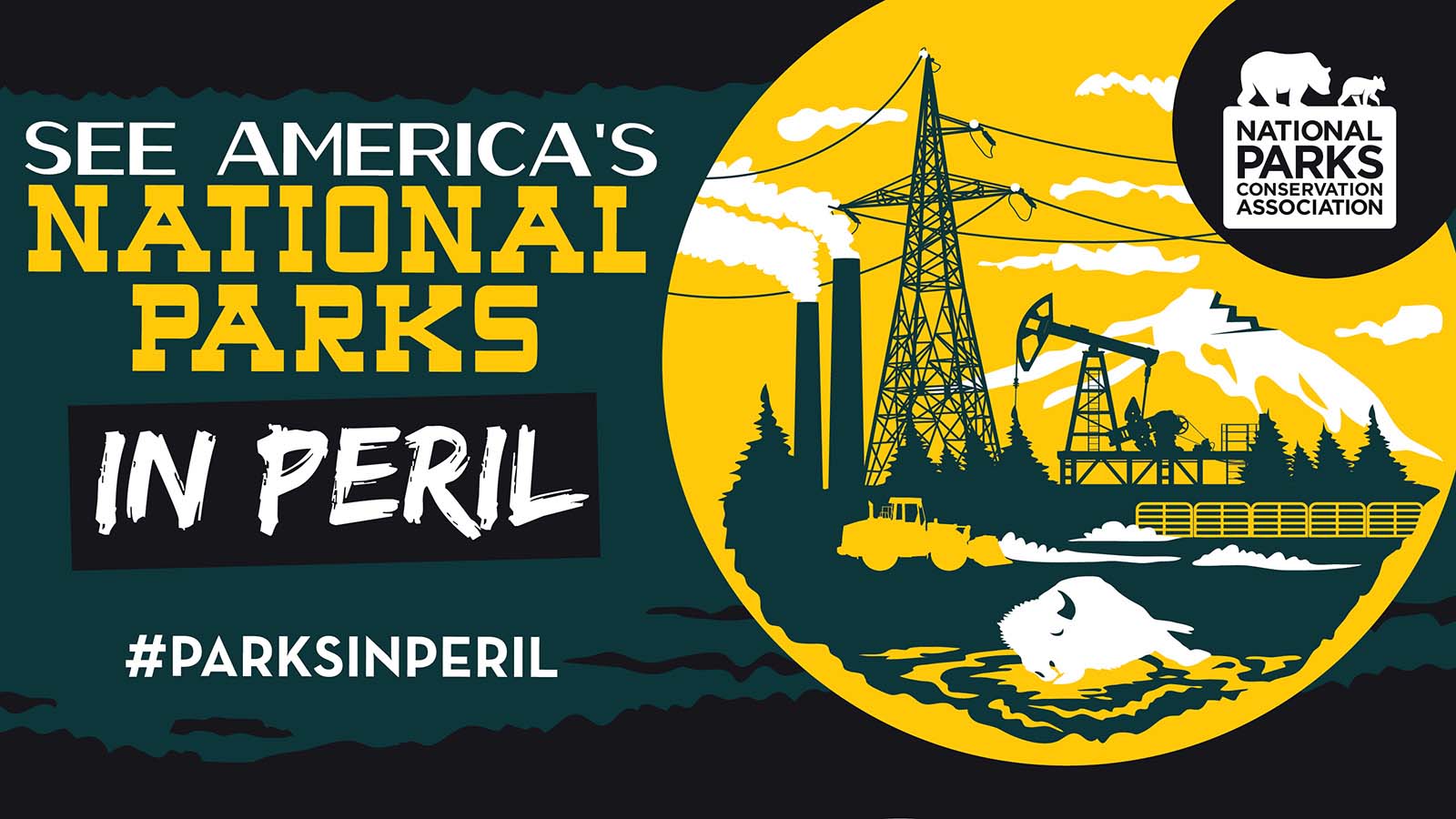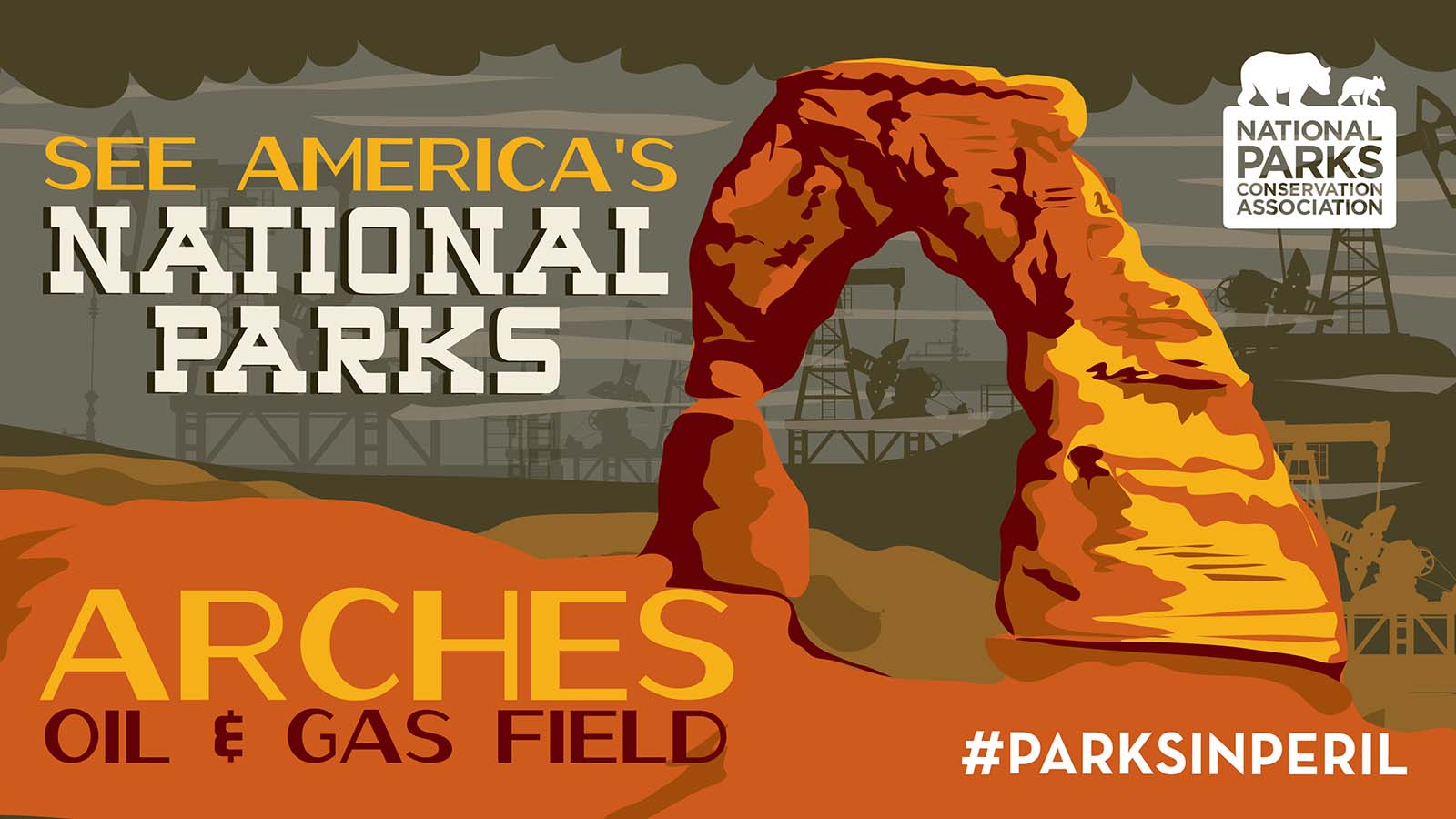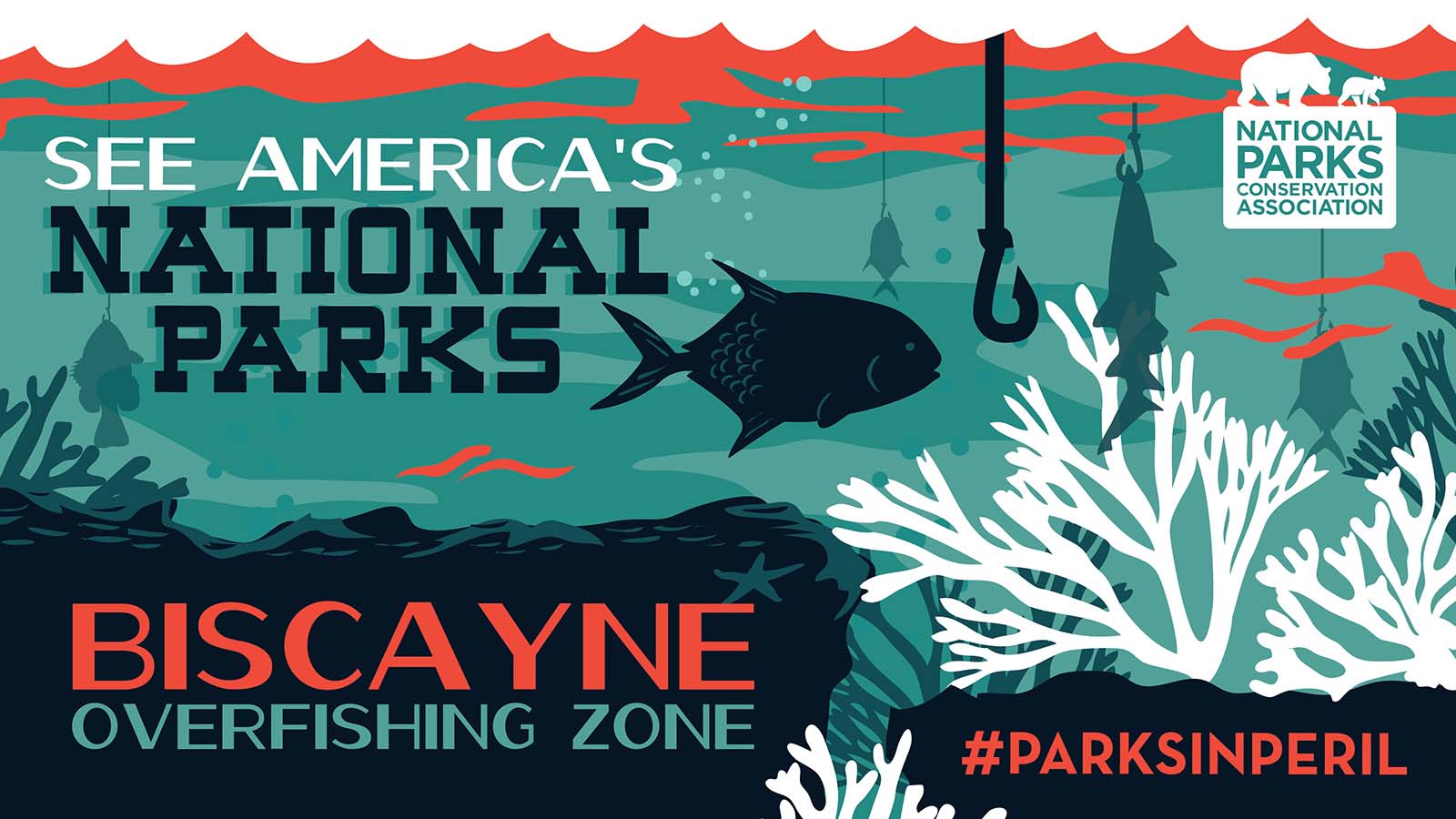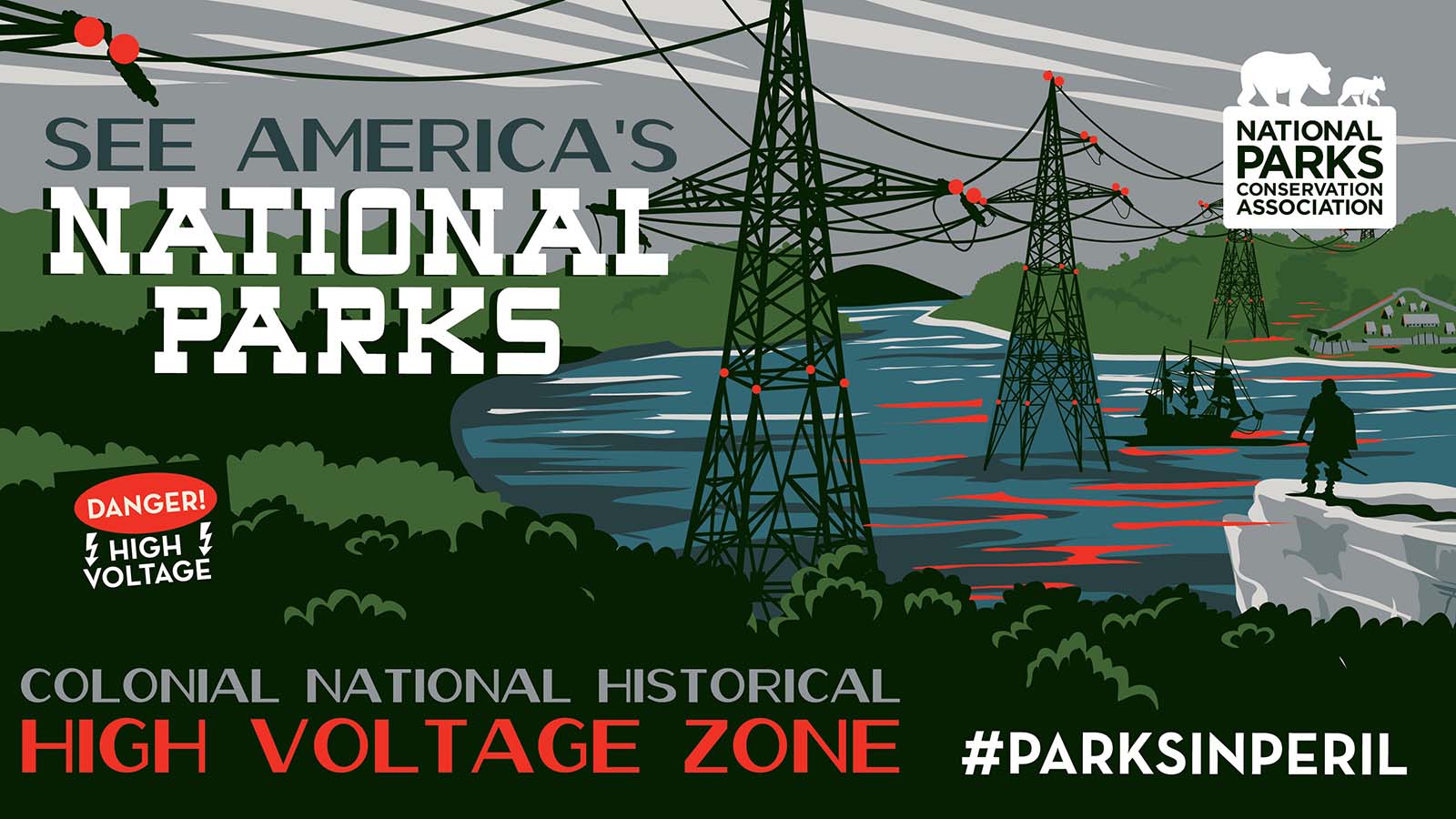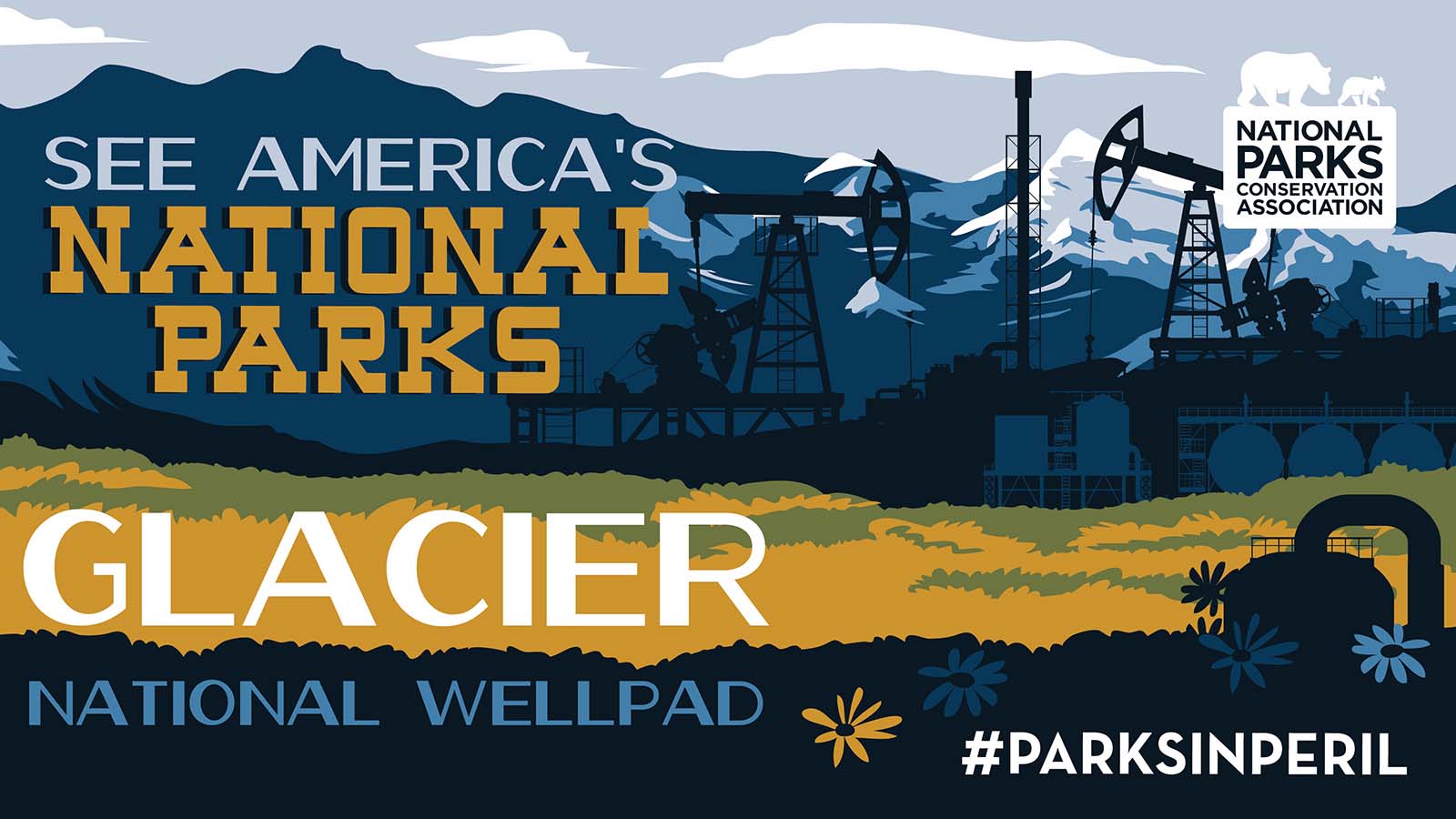WASHINGTON, Nov. 4, 2015 /PRNewswire-USNewswire/ -- In an effort to protect some of America's most iconic national parks from imminent threats within and just outside their borders, the non-profit National Parks Conservation Association today launched #ParksInPeril. The initiative, which calls on the Obama Administration to take action and prevent these threats before time runs out, focuses on nine crown jewels including Yosemite, Grand Canyon, Yellowstone, and Biscayne National Parks.
Experience the interactive Multimedia News Release here: http://www.multivu.com/players/English/7678451-npca-national-parks-in-peril/
#ParksInPeril, featuring bold illustrations depicting the grim future our national parks could face if action is not taken, is available at npca.org/parksinperil.
The threats and related actions identified in the #ParksInPeril initiative are:
- Arches National Park: Prevent industrial drilling from spoiling vistas, natural sound and dark skies by finalizing a sensible oil and gas leasing plan on lands surrounding the park;
- Biscayne National Park: Give the park's severely depleted fish and corals a chance to recover by implementing a marine reserve;
- Colonial National Historical Park: Prevent the irreversible loss of the historic character of Jamestown by stopping massive, obstructive transmission towers near the site;
- Glacier National Park: Block oil wells from drilling into sacred tribal lands outside the park's east entrance by cancelling decades-old leases that were issued in violation of federal environmental laws;
- Grand Canyon National Park: Prevent massive commercial development near the South Rim from sucking dry precious water sources by denying a right of way across adjacent national forest land;
- Grand Teton National Park: Protect wildlife and iconic mountain views by acquiring state lands in the heart of the park that are at imminent risk of being sold to private developers;
- Mojave National Preserve: Stop an industrial-scale renewable energy project from being built next to the park, in an important wildlife corridor;
- Yellowstone National Park: End the senseless slaughter of bison and provide these living symbols of wild America with more room to roam by finalizing a more sensible management plan;
- Yosemite National Park: Speed the restoration of clean healthy air, now estimated to take centuries, by strengthening clean air rules and holding polluters accountable.
"Arches, Yellowstone, Yosemite, and Grand Canyon are some of America's most celebrated national parks, but they are also some of the most threatened," said Mark Wenzler, National Parks Conservation Association Vice President of Conservation Programs. "If action isn't taken by the Obama Administration now, park visitors could see a mega-mall outside Grand Canyon and energy development in sensitive wildlife habitat right next to Mojave. Fortunately this administration has the opportunity to make decisions now that will protect and enhance these iconic national parks for future generations. Through our Parks in Peril initiative, National Parks Conservation Association will mobilize our more than one million supporters across the country to encourage the Administration to seize its unique opportunity to protect our incredible national parks."
Efforts are currently underway that could prevent such worst-case scenario threats at these parks from moving forward. Environmental reviews and other public processes are being led by federal agencies such as the Interior Department's Bureau of Land Management and National Park Service, the Environmental Protection Agency, and United States Forest Service. Diverse stakeholders, including tribes, business owners and community leaders, members of Congress, former park rangers, and environmental organizations have banded together to speak up for these crown jewels. Collectively, in 2014, the nine national parks highlighted in Parks in Peril welcomed nearly 23 million visitors, who spent more than $2.4 billion in surrounding communities.
"As an organization that speaks up for our national parks, we can't think of a better 100th anniversary gift to our national parks than the Obama Administration taking action and leaving our national parks in a stronger, more secure standing," said NPCA President and CEO Theresa Pierno. "We can't do it alone and are calling on all national park supporters to join us in speaking up for our most iconic landscapes and places that preserve our country's shared history."
About National Parks Conservation Association
Since 1919, the nonpartisan National Parks Conservation Association (NPCA) has been the leading voice in safeguarding our national parks. NPCA and its more than one million members and supporters work together to protect and preserve our nation's natural, historical, and cultural heritage for future generations. For more information, visit www.npca.org.
To view the original version on PR Newswire, visit:http://www.prnewswire.com/news-releases/national-parks-at-a-crossroads-9-parksinperil-300172024.html
SOURCE National Parks Conservation Association





